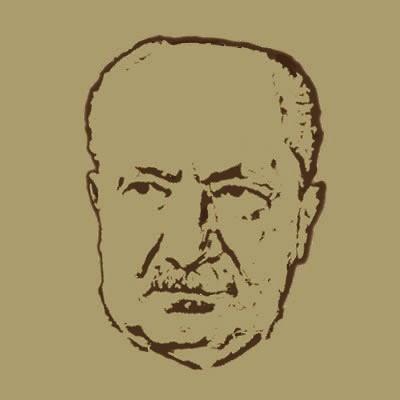The addressing of language: poetic saying in Heidegger and zen Buddhism; comparison and perspective
Main Article Content
Abstract
Following the trail of Byung-Chul Han, our goal is to carry out a task which complements the body of studies regarding the relation between Heideggerian and Eastern thoughts. To do so, on the grounds of an analysis regarding the Heideggerian relation between language, poetry and truth, we aim to study the ontological, historical and political implications of Heidegger’s notion of poetry, in order to show the incompatibilities -as well as their reasons- with Eastern poetry and, following the thesis of Lacoue-Labarthe, point at the political role of poetry in Heidegger, as well as how the nature of Eastern poetry makes it far less compatible with politics.
Downloads
Article Details

This work is licensed under a Creative Commons Attribution-NonCommercial-NoDerivatives 4.0 International License.
Authors retain ownership of copyright and reproduction rights.
Authors may make other independent and additional contractual arrangements for non-exclusive distribution of the version of the article published in this journal (e.g., inclusion in an institutional repository or publication in a book) as long as they clearly indicate that the work was first published in this journal.
Authors are allowed and encouraged to publish their work on the Internet (e.g. on institutional or personal websites) after the review and publication process, as it may lead to productive exchanges and to a wider and faster dissemination of the published work.
References
Adorno, Th. W. Notas sobre literatura (Obra completa, 11). Madrid, Akal, 2003. albano, S. Heidegger, Hölderlin y el zen. Buenos Aires, Quadrata, 2007.
Bucher, J. “Lenguaje y poesía en Heidegger (Fragmento)” en Revista de estudios sociales 12, 2002. pp. 120-130.
Chen, E. M. “How taoist is Heidegger?” en International Philosophical Quarterly 45(1), 2005. pp. 5-19.
Crespo Vargas, N. Heidegger: el ser es lo sencillo. Hacia una pedagogía del habitar. Bogotá, Universidad Santo Tomás, 2018.
De la Vega Visbal, M. “Heidegger: poesía, estética y verdad” en Eidos 12, 2010. pp. 28-46.
García lópez, J. “La concepción heideggeriana de la poesía” en Monteagudo: Revista de literatura española, hispanoamericana y teoría de la literatura, 11, 1955, pp. 4-10.
Han, B.-C. La sociedad del cansancio. Barcelona, Herder, 2013. Han, B.-C. Psicopolítica. Barcelona: Herder Editorial, 2014.
Han, B.-C. Filosofía del budismo zen. Barcelona, Herder, 2015. Han, B.-C. Topología de la violencia. Barcelona, Herder, 2015.
Han, B.-C. La expulsión de lo distinto. Barcelona, Herder, 2017. Han, B.-C. Muerte y alteridad. Barcelona, Herder, 2018.
Han, B.-C. Buen entretenimiento. Barcelona, Herder, 2018.
Heidegger, M. “Hölderlin y la esencia de la poesía” en Revista Universidad Pontificia Bolivariana, Vol. 11, nº 38, 1944, pp. 13-25.
Heidegger, M. De camino al habla. Barcelona, Serbal, 1987.
Heidegger, M. Aclaraciones a la poesía de Hölderlin. Madrid, Alianza, 2005.
Heidegger, M. Los himnos de Hölderlin “Germania” y “El Rin”. Buenos aires, Biblos, 2010. HeiDegger, M. Caminos de bosque. Madrid, Alianza, 2010.
Heidegger, M. “Poéticamente habita el hombre” en Revista de Filosofía, 7(1-2), 2017, pp. 77-91.
Lacoue-Labarthe, P. Heidegger, la política del poema. Madrid, Trotta, 2007.
Martín Morillas, A. M. La nada en el segundo Heidegger y el vacío en Oriente. Hermenéutica contrastativa (tesis doctoral). Granada, Universidad de Granada, 2003.
Saviani, C. El oriente de Heidegger. Barcelona, Herder, 1998.
Uriarte Montero, L. “Heidegger y la poesía como manifestación de la verdad” en A parte rei, revista de filosofía 34:7, 2004.
Watts, M. The philosophy of Heidegger. Durham, Acumen Publishing, 2011.

